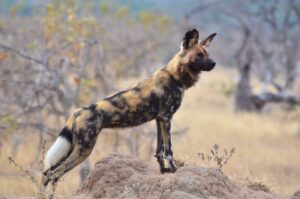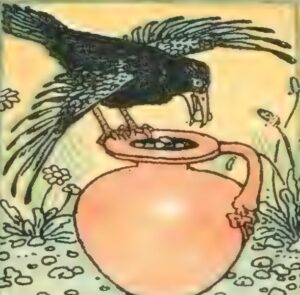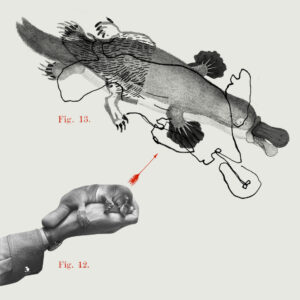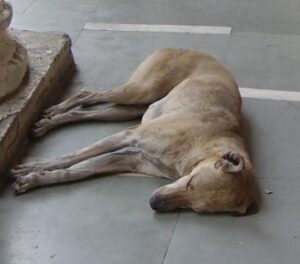Fabulous Species/Human-Animal Relationships
September 28-29, 2023 (A Hybrid Workshop) Fables of Fulfillment: The Material Horse in Context of Interspecies Literacy
Convenors: Christoph Lange and Christiane M. Bongartz (MESH, University of Cologne)
 The workshop seeks to explore the South-North trajectories involved in contemporary horse breeding and -training with an eye to political ecology and economic disparities that characterize the respective equestrian communities in the wider Mediterranean and Middle East region. Its aim is to develop and experiment with an approach that fruitfully engages with this tension of scale by allowing participants to address the following principal questions: How can your area of interest be described in terms of fables of fulfillment or multispecies storytelling? What drives cultural imagination in your area and what forms of contestation are at play? How is agency of horses and/or humans in your area embedded in and scaled into global dynamics and vice versa? Which are outstanding dynamics of your area (conversation, culture, capital) that could be defined as equine or interspecies literacy?
The workshop seeks to explore the South-North trajectories involved in contemporary horse breeding and -training with an eye to political ecology and economic disparities that characterize the respective equestrian communities in the wider Mediterranean and Middle East region. Its aim is to develop and experiment with an approach that fruitfully engages with this tension of scale by allowing participants to address the following principal questions: How can your area of interest be described in terms of fables of fulfillment or multispecies storytelling? What drives cultural imagination in your area and what forms of contestation are at play? How is agency of horses and/or humans in your area embedded in and scaled into global dynamics and vice versa? Which are outstanding dynamics of your area (conversation, culture, capital) that could be defined as equine or interspecies literacy?
For more information, please visit the event website.
Watch here Dr Lange and Prof. Bongartz’s joint talk, ‘When Humans Read Horses: Interspecies Literacy and Fabulations of Connectedness,’ delivered at Workshop 1 (June 20, 2023)
October 7, 2023 Restorative Fables for Wild Canids (Online Workshop)
 From the big, bad wolf to the dog in the manger, canines figure poorly in fable traditions that legitimate fear, resentment, and retribution in response to natural animal behavior, often with dire consequences for their real-world counterparts. Wolf (Canis lupus) restoration projects have become perennial sources of conflict. Coyotes (Canis latrans) are the most targeted predator species of killing contests. The African wild dog (Lycaon pictus) is one of the world’s most critically endangered mammals. Through case studies focused on these three types of wild canids, this panel considers how we might redirect the power of storytelling to contest histories that lead to abuse and extinction of wild canids. Because these keystone predators are necessary for healthy ecosystems, wild canids and humans alike stand to benefit from recovering or reimagining restorative fables.
From the big, bad wolf to the dog in the manger, canines figure poorly in fable traditions that legitimate fear, resentment, and retribution in response to natural animal behavior, often with dire consequences for their real-world counterparts. Wolf (Canis lupus) restoration projects have become perennial sources of conflict. Coyotes (Canis latrans) are the most targeted predator species of killing contests. The African wild dog (Lycaon pictus) is one of the world’s most critically endangered mammals. Through case studies focused on these three types of wild canids, this panel considers how we might redirect the power of storytelling to contest histories that lead to abuse and extinction of wild canids. Because these keystone predators are necessary for healthy ecosystems, wild canids and humans alike stand to benefit from recovering or reimagining restorative fables.
Speakers: Susan McHugh (University of New England), Karen Jones (Kent), Rosa Deen (Kent) / Chair: Jeanne Dubino (Appalachian State University)
Watch here the session
November 11, 2023 Rats! Fabulation, Translation, Transmission (Online Workshop)
 Rats are fable species in many ways. Not only do they feature prominently in fable traditions worldwide, but also we continuously invent and retell rat fables of our time. Rats are, for instance, a model species, extensively studied in experiments to uncover the stories of human nature. Vilified as vermin, they have given rise to countless ‘fables’ of rodent damage and havoc, offering perspectives on our societal values and norms. Their newfound role as a vector of plague transformed them into epidemiological fables, embodying cross-species infection and transmission, facilitated by global circulation. This workshop brings together six scholars specialising in rats to explore the nature and shapes of rat fables. Weaving together two papers and four shorter rat fable-telling, we aim to consider our varied and often contradictory representations of this species, as well as our relationships with rats and the world we share with them. Please join us and bring your rat ‘fables’ with you (we bet you must have some); we’d love you to be part of our rat fable-telling exercise and network.
Rats are fable species in many ways. Not only do they feature prominently in fable traditions worldwide, but also we continuously invent and retell rat fables of our time. Rats are, for instance, a model species, extensively studied in experiments to uncover the stories of human nature. Vilified as vermin, they have given rise to countless ‘fables’ of rodent damage and havoc, offering perspectives on our societal values and norms. Their newfound role as a vector of plague transformed them into epidemiological fables, embodying cross-species infection and transmission, facilitated by global circulation. This workshop brings together six scholars specialising in rats to explore the nature and shapes of rat fables. Weaving together two papers and four shorter rat fable-telling, we aim to consider our varied and often contradictory representations of this species, as well as our relationships with rats and the world we share with them. Please join us and bring your rat ‘fables’ with you (we bet you must have some); we’d love you to be part of our rat fable-telling exercise and network.
Speakers:
Christos Lynteris (University of St. Andrews) , ‘Staggering and Migratory Rats: Fabulating Zoonosis at the End of the Nineteenth Century’
Lucinda Cole (University of Illinois, Urbana-Champaign), ‘Dropout Rodents, Cannibal Rats: Fabulous Science and Fabular Art’
Also featuring: Jia Hui Lee (University of Bayreuth), Jules Skotnes-Brown (University of St. Andrews), Rory Hutchings (University of Kent), Kaori Nagai (University of Kent)
Watch here the session
January 11, 2024 ‘As the spider extends its web, one’s destiny unfolds’: The Cultural Value of Spiders (Online Workshop)
 This Vodou proverb from Benin reveals that humans interpret spiders as collaborators unlocking universal and existential meanings. This workshop features an interdisciplinary panel of spider scholars who share fables about these eight-legged wonders. Together we shall examine metaphorical representations of different elements of nature.
This Vodou proverb from Benin reveals that humans interpret spiders as collaborators unlocking universal and existential meanings. This workshop features an interdisciplinary panel of spider scholars who share fables about these eight-legged wonders. Together we shall examine metaphorical representations of different elements of nature.
Alberto Corsin Jimenez (ILLA-CSIC), ‘Three Spiders: Earth, Cloud, Sky’
Nate Morehouse (University of Cincinnati), ‘Seeing with Eight Eyes: Exploring the Visual World of Jumping Spiders’
Cass Lynch (Curtin University), ‘Aunties and uncles in the undergrowth: writing from the perspective of our more-than-human kin’.
Chair: Lisa Jean Moore (SUNY, Purchase College)
Watch here the session
January 29-30, 2024
Workshop 2 (online) Fabulous Species/Human-Animal Relationships (Online)
January 29
9-11am (UK time): Wisdom of Crows: Fables, Science, Storytelling
 Chair: Matthew Churlew
Chair: Matthew Churlew
Speakers: Jo Wimpenny, Kaeli Swift, Thom van Dooren
What can a crow fable teach us about the intelligence, cognitive abilities, and emotional lives of corvids? What roles can scientists, ethologists, and multispecies ethnographers play in creating new crow fables befitting our evolving relationship with these amazing birds? This session brings together three leading crow experts to share their research in relation to fables, and to discuss how we might learn to listen to crows as co-fabulists, and the important lessons they have to impart.
Watch here the session
4-5:30pm (UK time): Counterhuman
 Chair: Lucinda Cole
Chair: Lucinda Cole
Speaker: Laura Brown
In this session, Professor Laura Brown (Cornell) will discuss and lead a workshop on some of the theoretical ideas she explored in her new book, The Counterhuman Imaginary: Earthquakes, Lapdogs, and Traveling Coinage in Eighteenth-Century Literature (Cornell UP, 2023), to explore their relevance to ‘Rethinking fables’.
January 30
9:00-11:00am (UK time): Storying Animals in Public Places
 Presenters: Zoë Sadokierksi, Ceridwen Dovey, Thom van Dooren, Julia Kindt, Andrew Burrell
Presenters: Zoë Sadokierksi, Ceridwen Dovey, Thom van Dooren, Julia Kindt, Andrew Burrell
In this session we will present an overview of two current projects focused on telling unexpected animal stories to broad public audiences. These projects are ‘Animal Allegories’ (http://animalallegories.com.au/) and ‘Animal Tales’ (a trail of animal stories through the Chau Chak Wing Museum in Sydney). The projects work in a variety of media, including written texts, audio and video, illustration, augmented reality, and the creation of an immersive audio trail. In different ways, they seek to draw audiences into encounters with animals that will challenge, provoke, and redo their sense of the world and our relationships with other species. The projects are both grounded in the understanding that as we adapt to frightening new ecological realities, and as we fight to keep the future liveable for all creatures, the power of imagination plays a critical, if underappreciated, role. We know stories can’t save the world. But they can provide moments of respite, transporting us into an imaginative realm where new possibilities shimmer briefly into view.
Watch the session here
1:30-3:00pm (UK time) Therolinguistics / Fabulous fiction
 Chair: Susan McHugh
Chair: Susan McHugh
Matthew Churlew, ‘What Grew from the Acacia Seeds: A Century of Therolinguistics’
Jeanne Dubino, ‘Stray Dogs in Contemporary Fabulous Fiction’
Watch the session here
3:30-5:30pm (UK time) Elephant Fables
 Chair: Nigel Rothfels
Chair: Nigel Rothfels
Tobias Menely, ‘War and Peace with Elephants: From World Literature to Planetary Storytelling’
Kim Stallwood, ‘Topsy: Myth or Reality’
Sospeter Kiambi, ‘Encounter with Tim, the “Super Tusker”’
Watch the session here